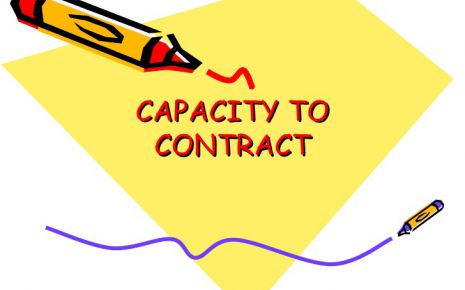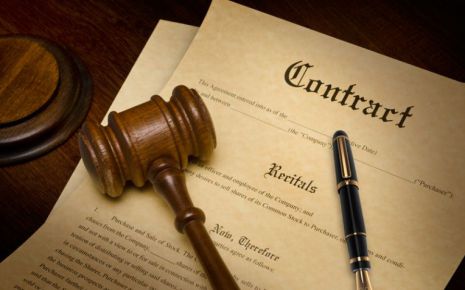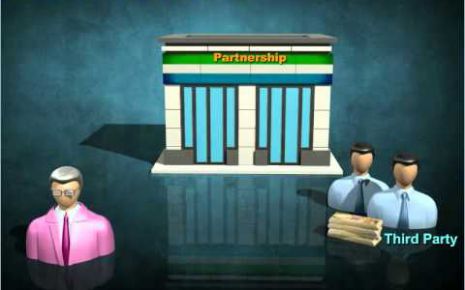Adjournment in Court
Introduction
In the legal field, an adjournment refers to a temporary pause or delay in a court hearing or trial. This practice is widely implemented and serves multiple purposes. Requesting an adjournment can be done by any party involved in a case, and it can also be granted by the court for various reasons.
Order 17 Rule 1 of Code of Civil Procedure 1908 - Adjournment in Civil Cases
If additional adjournments are needed, the Court will set a future date for further proceedings and may also make decisions regarding any costs incurred due to the adjournment. The court has discretion to impose higher costs if deemed necessary.
Provided that:
Section 309 Code of Criminal Procedure, 1973 � Adjournment in Criminal Cases
It's important to highlight that no Magistrate can remand an accused person for more than fifteen days at a time under this provision.
Unless there are special written reasons recorded justifying otherwise, no adjournment should be granted when witnesses are present. Furthermore, no adjournment should be given solely for allowing the accused person to contest against a proposed sentence.
There are additional provisions related to adjournments:
Purpose of Adjournment:
Adjournments within the context of legal proceedings fulfill several valid and crucial functions:
While adjournments undeniably play a pivotal role in serving these vital functions, it is imperative that they are employed judiciously. Their misuse for unwarranted delays or obstructions to the judicial process must be avoided. Courts retain the authority to either grant or deny adjournments based on the merits of the request and the broader interests of justice, ensuring that they are dispensed only when genuinely necessary and justified.
Misuse of Adjournment:
Adjournments play a legitimate and essential role within the legal system, providing the necessary flexibility for court proceedings' scheduling. However, a concerning trend has emerged in recent times, where the misuse of adjournments has raised substantial concerns. This misuse, often driven by tactical or unjustifiable motives, has profound implications for the administration of justice. This discourse examines the misuse of adjournments and its significant repercussions.
It's crucial to address the misuse of adjournments in order to ensure a smooth administration of justice and uphold the integrity of the legal system. Implementing rules and procedures that necessitate parties to provide valid and compelling reasons for adjournment requests is a critical step. Judicial discretion assumes a pivotal role in discerning and rejecting adjournment requests lacking merit. By curbing unwarranted delays, the legal system can operate more efficiently, rendering justice in a timely and equitable manner.
Court Judgments:
Conclusion:
Legal practitioners must exercise caution when requesting unnecessary adjournments; as such actions can encroach upon the legal rights of opposing parties, potentially undermining confidence in the judicial system. It is crucial for courts to meticulously evaluate each adjournment application. If it becomes apparent that a party is merely seeking an adjournment to deliberately prolong proceedings and retain control, the court retains the authority to deny such requests.
The practice of granting adjournments without a substantial basis can pose a challenge to the efficient functioning of court operations. Judges possess discretionary powers, enabling them to issue various orders even when the concerned parties fail to make an appearance. The fundamental purpose of an adjournment is to temporarily defer a decision regarding a case pending before the court.
Parties or their legal representatives may invoke sudden illness or physical ailments as grounds for seeking an adjournment. Nevertheless, should these claims be subsequently proven false, repercussions may ensue. These consequences may include financial penalties for misleading the court or needlessly consuming its time.
Courts are steadfast in their commitment to expeditiously resolve cases. However, if legal practitioners fail to cooperate with this objective, the court may find itself compelled to render judgments based on the existing case record, a scenario that may not necessarily work to the advantage of the parties involved.
References:
Email: [email protected], Ph no: 9836576565
In the legal field, an adjournment refers to a temporary pause or delay in a court hearing or trial. This practice is widely implemented and serves multiple purposes. Requesting an adjournment can be done by any party involved in a case, and it can also be granted by the court for various reasons.
Order 17 Rule 1 of Code of Civil Procedure 1908 - Adjournment in Civil Cases
- The court has the authority to grant parties in a lawsuit additional time if there is sufficient cause. They can also adjourn the hearing of the suit for valid reasons, with these reasons being recorded in writing.
If additional adjournments are needed, the Court will set a future date for further proceedings and may also make decisions regarding any costs incurred due to the adjournment. The court has discretion to impose higher costs if deemed necessary.
Provided that:
- Once the suit hearing begins, it will continue on consecutive days until all present witnesses have been examined. However, the court may grant an adjournment beyond the next day if there are exceptional reasons that need to be recorded.
- Parties cannot request adjournments unless circumstances beyond their control require it.
- The engagement of a party's lawyer in another court will not be a valid reason for adjournment.
- If a pleader is ill or unable to handle the case for any reason other than being engaged in another court, they cannot automatically request an adjournment. The court will approve the adjournment only if it is convinced that the party requesting it had no other feasible option to find a replacement attorney in time.
- In a scenario where a witness is present in court but one of the parties or their representative is absent or not prepared to question the witness, the court has the authority to record the statement of the witness and make relevant decisions on whether examination or cross-examination by the absent or unprepared party should be waived.
Section 309 Code of Criminal Procedure, 1973 � Adjournment in Criminal Cases
- In any inquiry or trial, the proceedings should be conducted
continuously until all witnesses present have been examined. However, if the
court determines that an adjournment is necessary, valid reasons must be
recorded. It is important to note that for cases related to specific
offenses like sexual offenses under sections 376, 376A, 376AB, 376B, 376C,
376D, 376DA, or section 376DB of the Indian Penal Code, the inquiry or trial
must be completed within two months from the date of filing the charge
sheet.
- If during a trial the court deems it necessary or advisable to postpone or adjourn proceedings, it has the authority to do so. The length of delay should be determined based on what is reasonable and justifiable and considering any specific recorded reasons. If an accused person is in custody during this period of postponement or adjournment, they may be remanded by warrant.
It's important to highlight that no Magistrate can remand an accused person for more than fifteen days at a time under this provision.
Unless there are special written reasons recorded justifying otherwise, no adjournment should be granted when witnesses are present. Furthermore, no adjournment should be given solely for allowing the accused person to contest against a proposed sentence.
There are additional provisions related to adjournments:
- Parties cannot request adjournment unless there are circumstances beyond their control.
- A party's lawyer being absent in another court cannot be used as a reason for adjournment.
- If a witness is present in court but a party or their lawyer is not
ready to question them, the Court has the authority to record the witness
statement and make appropriate rulings regarding examination.
- The decision to remand an accused person is based on evidence suggesting their involvement in a crime and the likelihood of gathering more evidence during this period.
- In some cases, adjournments or postponements may be granted, with potential costs assigned to either the prosecution or the accused.
Purpose of Adjournment:
Adjournments within the context of legal proceedings fulfill several valid and crucial functions:
- Flexibility in Court Scheduling: The primary role of adjournments lies in facilitating flexible scheduling of court proceedings. This adaptability ensures efficient allocation of court time and resources.
- Facilitating Adequate Preparation: Adjournments are necessary to provide both parties embroiled in a legal dispute with ample time to adequately prepare their case. This preparation includes gathering evidence, consulting witnesses, and engaging with legal counsel.
- Addressing Unforeseen Events: In cases where unforeseeable and uncontrollable circumstances arise, such as the illness of a party or a key witness, adjournments are granted to accommodate these emergencies. This allows individuals to physically participate in the proceedings.
- Resolving Procedural Complexities: Adjournments are frequently indispensable when it comes to tackling procedural intricacies or legal complexities that necessitate extra time for examination or argument. This is particularly pertinent in intricate civil or criminal cases.
- Ensuring Witness Presence: In situations where vital witnesses are unavailable on a scheduled hearing date, adjournments become necessary to ensure their presence, considering their testimony's crucial significance to the case in hand.
- Encouraging Settlement and Dispute Resolution: On occasion, parties employ adjournments to partake in settlement negotiations or explore alternative methods of resolving disputes. This can be more cost-effective and efficient for dispute resolution.
- Managing Overcrowded Court Schedules: In some legal systems, court dockets are inundated, resulting in scheduling conflicts. In such scenarios, adjournments aid in managing the caseload, ensuring a more orderly progression of cases.
- Addressing Matters of Public Interest: Adjournments become necessary to prioritize and handle cases with compelling public interest, such as national emergencies or issues affecting public safety.
- Ensuring Witness Safety: In sensitive or high-profile cases, safeguarding the safety and security of witnesses is a prominent concern; hence adjournments may be requested or granted to address these concerns and ensure the well-being of those involved.
- Facilitating Evidence Collection: The cases necessitating the procurement of specific types of evidence or expert witnesses may require adjournments to allow for the proper acquisition of such evidence or the securing of expert presence.
While adjournments undeniably play a pivotal role in serving these vital functions, it is imperative that they are employed judiciously. Their misuse for unwarranted delays or obstructions to the judicial process must be avoided. Courts retain the authority to either grant or deny adjournments based on the merits of the request and the broader interests of justice, ensuring that they are dispensed only when genuinely necessary and justified.
Misuse of Adjournment:
Adjournments play a legitimate and essential role within the legal system, providing the necessary flexibility for court proceedings' scheduling. However, a concerning trend has emerged in recent times, where the misuse of adjournments has raised substantial concerns. This misuse, often driven by tactical or unjustifiable motives, has profound implications for the administration of justice. This discourse examines the misuse of adjournments and its significant repercussions.
- Impeded Justice and Exploited Legal Procedures: The most conspicuous and detrimental outcome of the misapplication of adjournments is the protracted delay in the dispensation of justice. Seeking unnecessary adjournments has evolved into a tool for prolonging legal disputes, ultimately resulting in a substantial abuse of the legal process. Consequently, the delivery of justice is significantly delayed, causing frustration and adversity for the involved parties.
- Escalating Caseload Backlog: A direct outcome of the inappropriate use of adjournments is the accumulation of unresolved cases in the court system. Courts are already grappling with a considerable caseload, and the excessive granting of adjournments exacerbates this issue. As a result, cases linger without resolution, further prolonging the adjudication of legal disputes.
- Exploitative Advantages for Parties: In several instances, parties exploit adjournments to their advantage. They leverage these postponements to continue unlawful activities, even in cases involving severe criminal offenses. For instance, in instances of domestic violence, the accused party may manipulate adjournments to perpetuate abusive conduct without facing prompt legal consequences.
- Manipulative Tactics for Misuse: The misuse of adjournments frequently involves the deployment of an array of tactics to obstruct legal proceedings. Parties or their legal representatives may opt not to appear on scheduled hearing dates, submit adjournment applications lacking valid grounds, or hastily seek adjournments without substantiated justifications. These tactics are designed to introduce unwarranted delays without legitimate basis.
- Strain on Limited Court Resources: Courts operate with finite resources, including judges, staff, and facilities. When adjournments are misused, it puts unnecessary strain on court resources and leads to inefficient use of time and personnel. This ultimately creates inefficiencies within the legal system.
It's crucial to address the misuse of adjournments in order to ensure a smooth administration of justice and uphold the integrity of the legal system. Implementing rules and procedures that necessitate parties to provide valid and compelling reasons for adjournment requests is a critical step. Judicial discretion assumes a pivotal role in discerning and rejecting adjournment requests lacking merit. By curbing unwarranted delays, the legal system can operate more efficiently, rendering justice in a timely and equitable manner.
Court Judgments:
- The Supreme Court, in an order passed in 2021, urged the courts not to grant repeated adjournments in routine manner. Time has now come to change the work culture and get out of the adjournment culture so that confidence and trust put by the litigants in the Justice delivery system is not shaken and Rule of Law is maintained, Justice MR Shah and AS Bopanna observed. livelaw.in, 25 September, 2021
- Adjournments are enemies of the justice delivery system. The Madras High Court has emphasized that judges should not adjourn cases out of laziness or rely on lawyers to seek adjournments. This mindset, they assert, cannot be tolerated when numerous litigants are eagerly awaiting justice. thehindu.com, December 15, 2021
- 'Counsel being out of station' is not a ground for granting an adjournment, ruled Supreme Court in the case of Ram Siromani Tripathi & Ors. v. State of U.P & Ors. barandbench.com, 17 February 2019
- Judge's Integrity Can't Be Doubted Merely for Allowing Adjournment Request: MP High Court. livelaw.in, 28 June, 2022
- Supreme Court judge BV Nagarathna stressed the importance of junior lawyers beginning to argue in court early on in their career. In today's court proceedings, a junior lawyer requested Justices Nagarathna and Ujjal Bhuyan to adjourn the hearing of a case due to the ill-health of the main counsel. livelaw.in, 31 August, 2023
- The Supreme Court, in the case of State of U.P. v. Shambhu Nath Singh (2001), criticized the practice of courts adjourning cases without questioning witnesses who are present. The court emphasized that trial courts should recognize that witnesses are responsible citizens with other commitments and cannot be repeatedly summoned for the convenience of advocates. Advocates who request adjournments without valid reasons fail in their duty to protect witnesses from intimidation and hardship. Engaging in filibuster tactics constitutes professional misconduct.
- Justice DY Chandrachud remarked that the only answer to the adjournment-seeking antics is live-streaming of cases so that the society at large can see who is taking time and how matters get adjourned. During the consideration of a 2018 SLP (Special Leave Petition), Justices Chandrachud and MR Shah faced a request for adjournment on behalf of the petitioner. livelaw.in, 8 July 2021.
Conclusion:
Legal practitioners must exercise caution when requesting unnecessary adjournments; as such actions can encroach upon the legal rights of opposing parties, potentially undermining confidence in the judicial system. It is crucial for courts to meticulously evaluate each adjournment application. If it becomes apparent that a party is merely seeking an adjournment to deliberately prolong proceedings and retain control, the court retains the authority to deny such requests.
The practice of granting adjournments without a substantial basis can pose a challenge to the efficient functioning of court operations. Judges possess discretionary powers, enabling them to issue various orders even when the concerned parties fail to make an appearance. The fundamental purpose of an adjournment is to temporarily defer a decision regarding a case pending before the court.
Parties or their legal representatives may invoke sudden illness or physical ailments as grounds for seeking an adjournment. Nevertheless, should these claims be subsequently proven false, repercussions may ensue. These consequences may include financial penalties for misleading the court or needlessly consuming its time.
Courts are steadfast in their commitment to expeditiously resolve cases. However, if legal practitioners fail to cooperate with this objective, the court may find itself compelled to render judgments based on the existing case record, a scenario that may not necessarily work to the advantage of the parties involved.
References:
- https://www.lawdadi.in/cpc/order-XVII-rule-1-cpc-court-may-grant-time-and-adjourn-hearing-code-of-civil-procedure.html
- https://www.lawinsider.in/columns/what-is-court-adjournment
- https://www.livelaw.in/top-stories/supreme-court-adjournment-culture-repeated-routine-manner-182459
- https://www.thehindu.com/news/cities/chennai/judges-find-it-convenient-to-adjourn-cases-says-madras-high-court/article37956659.ece
- https://www.livelaw.in/news-updates/madhya-pradesh-high-court-quashes-order-lower-court-judge-misconduct-adjournment-202519
- https://www.livelaw.in/top-stories/supreme-court-judge-bv-nagarathna-adjournment-pass-over-counsel-236646
- https://blog.ipleaders.in/section-309-crpc/
- https://www.livelaw.in/top-stories/justice-chandrachud-live-streaming-adjournment-seeking-antics-cause-of-pendency-177109
Email: [email protected], Ph no: 9836576565
Law Article in India
Legal Question & Answers
Lawyers in India - Search By City
LawArticles
How To File For Mutual Divorce In Delhi

How To File For Mutual Divorce In Delhi Mutual Consent Divorce is the Simplest Way to Obtain a D...
Increased Age For Girls Marriage

It is hoped that the Prohibition of Child Marriage (Amendment) Bill, 2021, which intends to inc...
Facade of Social Media

One may very easily get absorbed in the lives of others as one scrolls through a Facebook news ...
Section 482 CrPc - Quashing Of FIR: Guid...

The Inherent power under Section 482 in The Code Of Criminal Procedure, 1973 (37th Chapter of t...
The Uniform Civil Code (UCC) in India: A...

The Uniform Civil Code (UCC) is a concept that proposes the unification of personal laws across...
Role Of Artificial Intelligence In Legal...

Artificial intelligence (AI) is revolutionizing various sectors of the economy, and the legal i...








Please Drop Your Comments